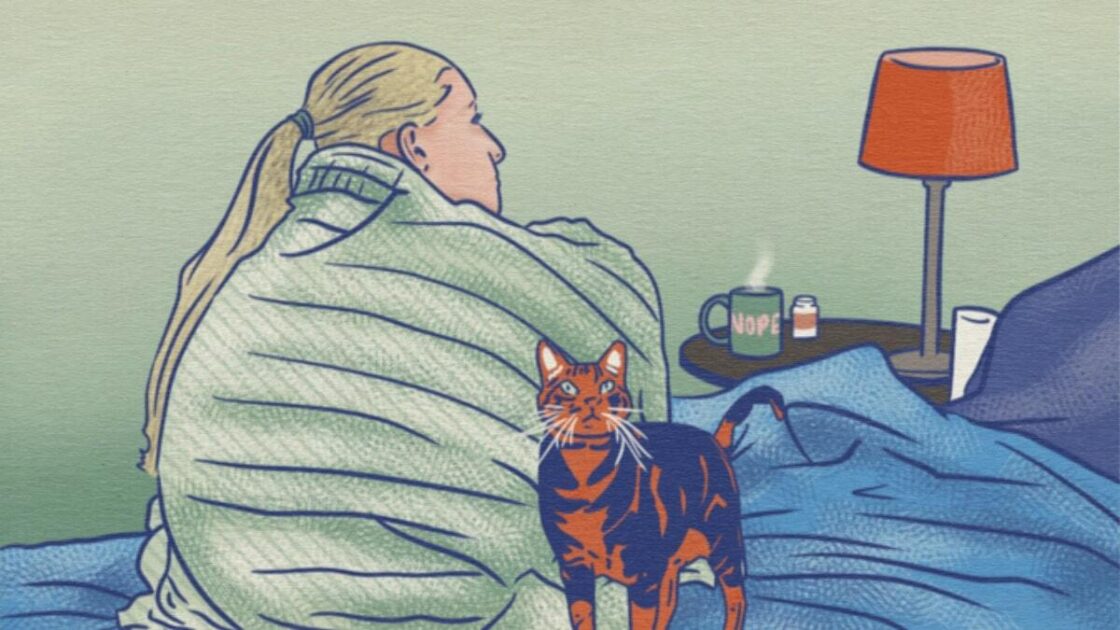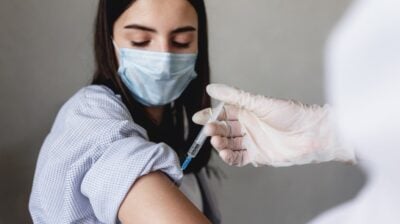What is PMS?
PMS (premenstrual syndrome) is the name for the symptoms that can be experienced in the weeks before your period.

PMS (premenstrual syndrome) is the name for the symptoms that can be experienced in the weeks before your period. Most people who get their period have PMS at some point. Symptoms of PMS can include feeling upset, anxious or irritable, bloating, cramps and changes in appetite and sex drive.
What causes PMS?
The causes of PMS are not completely clear. It is thought that it is caused by changes in hormones during the menstrual cycle. After ovulation, around day 14 of the menstrual cycle, oestrogen levels drop and there is a rise in the hormone progesterone. This happens to prepare the lining of your womb for the implantation of a fertilised egg. If you do not get pregnant, oestrogen and progesterone levels start to drop around days 22 to 24 of your cycle. This change is believed to cause PMS.
Although people who have PMS don’t necessarily have abnormal hormone levels, they might react particularly sensitively to the substances that are produced when progesterone is broken down. Progesterone might also affect neurotransmitters (chemical messengers) in the brain. Serotonin apparently plays an important role here. Genes and environmental factors probably affect the likelihood of getting PMS too.
What are the symptoms of PMS?
Each person’s symptoms are different and can vary from month to month.
The most common symptoms of PMS include:
- Feeling upset, anxious or irritable
- Tiredness or trouble sleeping
- Bloating or tummy pain
- Cramps
- Breast tenderness
- Headaches
- Spotty skin
- Greasy hair
- Changes in appetite and sex drive
- Crying and feeling like you want to cry
- Constipation or diarrhoea
What can help PMS?
You know your body best, and with time you will get to know what makes you feel better when experiencing PMS
Some ways of managing PMS include:
- Exercising and moving your body in a way that feels good to you
- Eating a healthy, balanced diet. You may find that eating frequent smaller meals (every two to three hours) suits you better than eating three larger meals a day
- Getting plenty of sleep, at least seven to eight hours is recommended
- Reducing your stress by doing yoga or meditation
- Taking painkillers such as ibuprofen or paracetamol if necessary
- Putting a heating pad on your belly or lower back for cramps
- Taking a hot bath
- Masturbating
- Having sex
- Resting
- Hormonal contraception (like the pill, patch, ring, implant, and hormonal IUD)
- Avoiding smoking and drinking alcohol
If you are concerned about the impact PMS is having on your life, it can help to keep a diary of your symptoms for at least 2 to 3 menstrual cycles. Several free period tracking apps for your phone can also help with this. You can take this to your pharmacist or a GP appointment and speak to them about how PMS is impacting your life and the options available to help relieve your symptoms.
How can PMS be treated?
Having a calendar that has tracked your symptoms is very useful and can help monitor your response to treatments.
As well as changes to your day-to-day activity, a GP can recommend treatments for PMS including:
- Dietary supplements
- Cognitive behavioural therapy, which is a talking therapy
- Hormonal medicine such as the combined contraceptive pill
- Antidepressants
Complementary therapies such as acupuncture and reflexology, as well as dietary supplements, may help with PMS, but the evidence of their effectiveness is limited. Supplements such as vitamin B6, calcium, vitamin D, and magnesium may help with PMS. Check with a GP or pharmacist if you are also taking medicines before starting to take regular supplements.
You may be referred to a specialist if you still get symptoms after trying these treatments. This could be a gynaecologist, gynaecology nurse specialist, psychiatrist or counsellor.
Feeling overwhelmed and want to talk to someone?
- Get anonymous support 24/7 with our text message support service
- Connect with a trained volunteer who will listen to you, and help you to move forward feeling better
- Whatsapp us now or free-text SPUNOUT to 50808 to begin.
- Find out more about our text message support service
If you are a customer of the 48 or An Post network or cannot get through using the ‘50808’ short code please text HELLO to 086 1800 280 (standard message rates may apply). Some smaller networks do not support short codes like ‘50808’.






